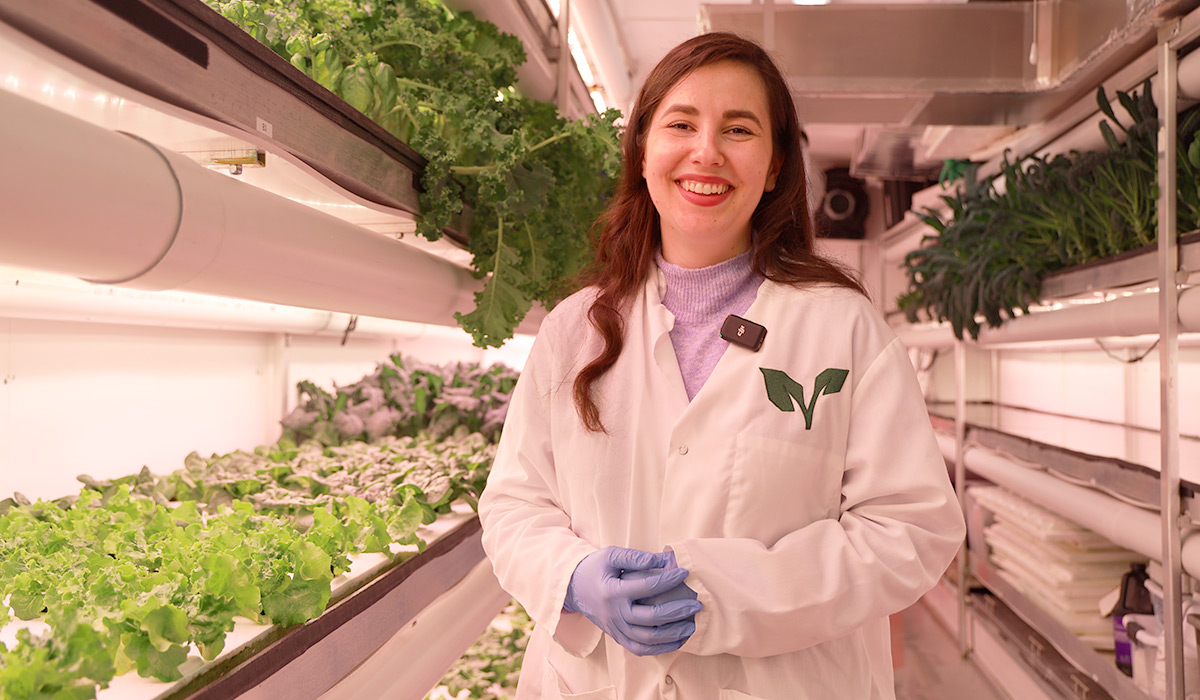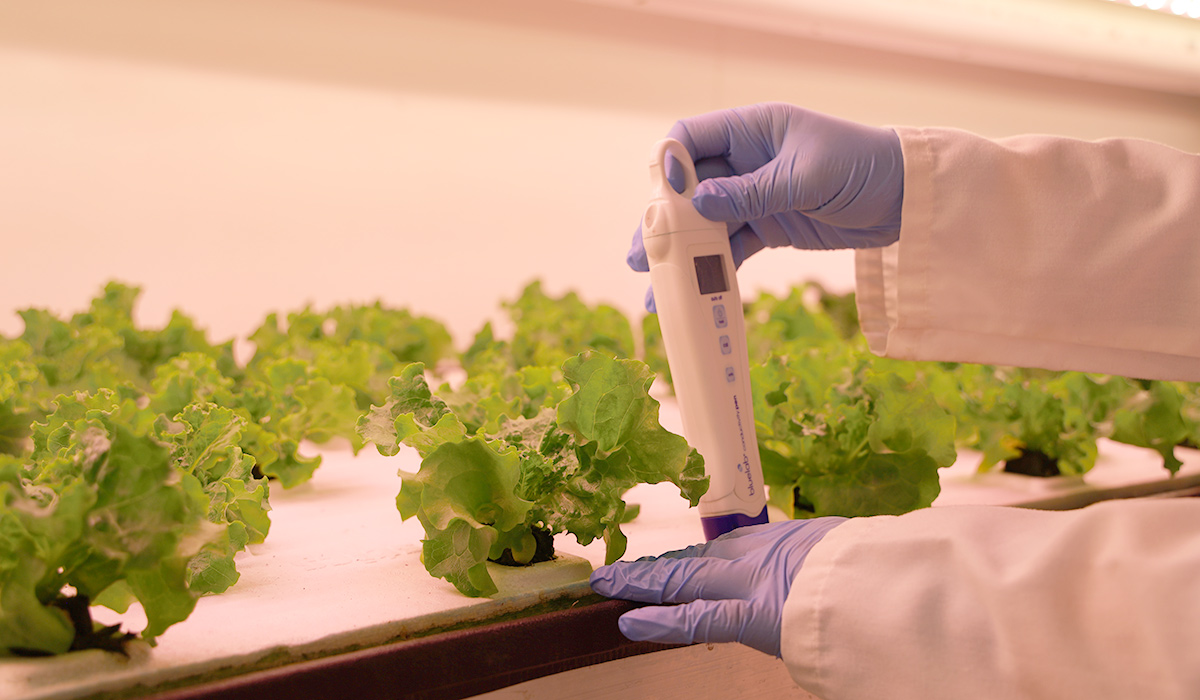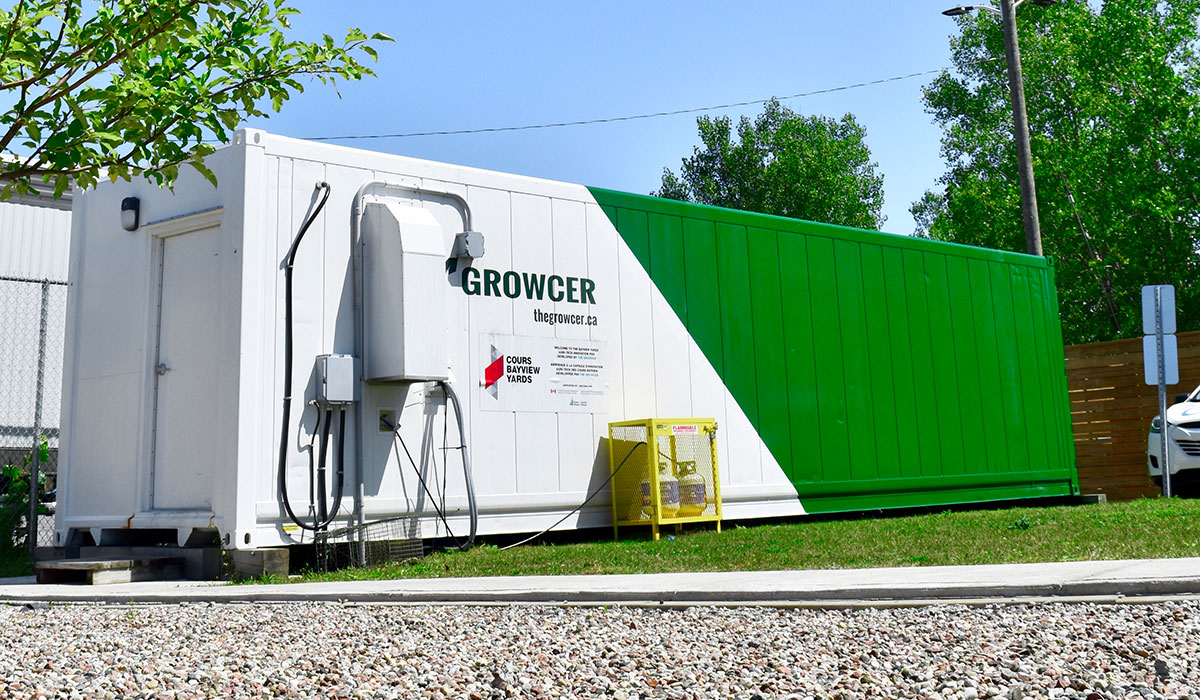Alida Burke, a graduate of Carleton University’s Master of Accounting program may have the answer. Burke is co-founder of Growcer Inc., a company that has developed an economically sustainable solution for addressing year-round food access through modular hydroponic farms.
“Everyone deserves to have fresh, healthy, and affordable food,” says the Carleton grad, who launched Growcer in 2016.

The company manufactures indoor farms made out of 40-foot-long modular structures resembling shipping containers. They are built to withstand temperatures up to 40 C and down to -40 C, along with harsh weather conditions like snow, ice and rain. Growcer’s farm modules are equipped to grow more than 140 types of produce such as lettuce, spinach, and kale.
Breaking Down Barriers to Food Access
Burke’s inspiration for Growcer came after a trip to Iqaluit in 2015 where she saw firsthand the challenges that remote, specifically Indigenous, communities are facing. Fast forward to 2019, Burke and her business partner successfully pitched their idea on Dragon’s Den, a Canadian reality television show. Since its launch, Growcer has expanded to serve farmers, communities, retailers and non-profit organizations all over Canada. In 2021, one of their farms was installed at Ayás Méńmen Child and Family Services to help bring healthy, locally grown food to the Squamish Nation.
“Creating a sustainable healthy source of produce and increasing food sovereignty has long been a goal for the Squamish Nation, and Growcer is another piece of the puzzle,” said Kelley McReynolds, director of Ayás Méńmen Child and Family Services, in a Growcer story.
Growcer’s modular farms provide the perfect atmosphere for food to be grown indoors, all year around. Each system features rows of shelves, stacked vertically, where dozens of plants are grown. The plants sit in a shallow pond of water mixed with specific nutrients to help them thrive – a technique referred to as deep water culture hydroponic farming. This allows the plants to grow without the use of soil. The shelves are lit by LED lights, removing the need for natural light. The system also includes a high-quality HVAC system to circulate fresh air and minimize outdoor contaminants.

“In just one of our 400 square foot container farms, we can have over 787 plants harvested weekly,” explains Burke.
“This paired with not having to rely on Canada’s outdoor growing season makes for a truly remarkable output.”
One farm which was recently installed in Muskoka, Ontario, is on pace to grow 8,500 pounds of produce in the next year. Another partner in Vaughan, Ontario, is growing in a wheelchair accessible farm, the first of its kind in Canada. To accommodate people with mobility devices, the farm includes wider door widths, lower table heights, power-operated doors, a space for wheelchairs to turnaround and other small improvements to make growing locally accessible.
“It’s extremely important to us that our farms are tailored to work for every kind of person in every kind of place,” Burke says.
People, Planet and Profit
This people-centered line of thinking is at the heart of Burke’s business model which she approaches through a triple bottom line. This means her focus is split between people, planet and profit. She believes in tackling food sovereignty in an environmentally friendly way. As such, Growcer not only reduces the fuel burned from transporting food, but their farms use less land and water than conventional agriculture.
“Helping people and the planet through business shouldn’t be seen as just a nice bonus. It should be a best practise of all companies,” says Burke.
In addition to manufacturing farms, Growcer has extended its reach into education, offering a number of courses and workshops on hydroponics. Their farms are also being put to use at elementary schools, colleges and university campuses across the country. Some institutions use them to teach students about hydroponic farming, while others are growing food for their cafeteria or converting their farms into a local food pantry.

For Burke, seeing her business come full circle is what inspires her the most.
“It’s amazing to see how our hard work has helped Indigenous, rural and remote communities achieve their food sovereignty goals,” Burke says.
“I’m so grateful to be part of this important work we’re doing here at Growcer.”